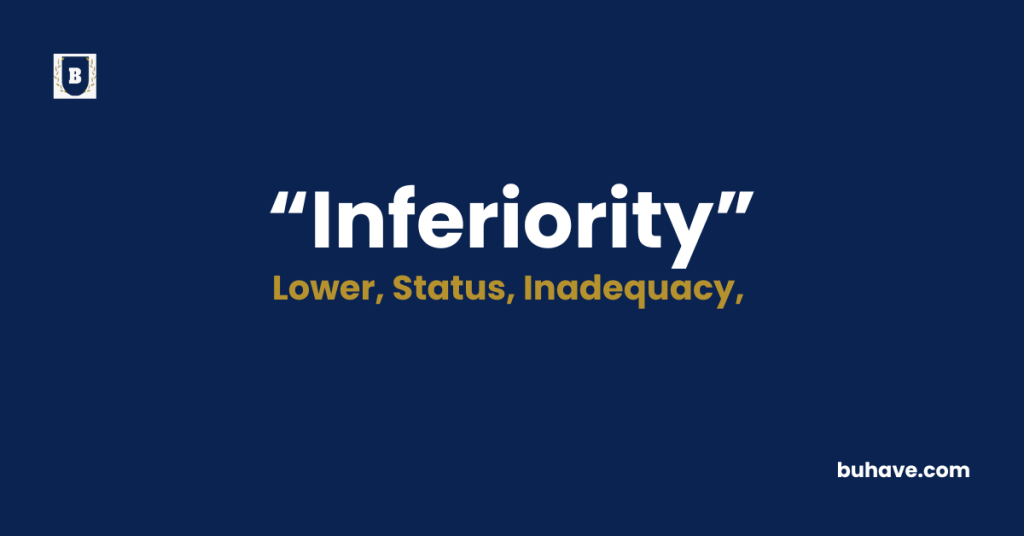The word Inferiority (Noun) refers to the condition of being lower in status, quality, or ability compared to others. In this guide, you’ll learn the full definition, synonyms, antonyms, etymology, and real-life examples of how to use Inferiority correctly in sentences.
Inferiority Explained in Depth
A complete and detailed guide to the word Inferiority including meaning, definition, examples, etymology, synonyms, and antonyms.
Meanings of Inferiority
Inferiority means the state or feeling of being less important, less capable, or lower in rank or quality than someone or something else. It often involves self-perception, social comparison, or actual disadvantages in resources, recognition, or ability.
Definition
Inferiority refers to a perceived or actual condition of being lesser in quality, rank, strength, or worth. It can describe physical traits, social position, educational standing, or internal self-esteem. In psychology, “inferiority complex” is a common term used to describe a person’s persistent feelings of inadequacy. These feelings may lead to a lack of confidence or overcompensation through aggressive or arrogant behavior. Inferiority also exists in broader contexts such as economics, where a product might be considered inferior to another based on quality or cost. In social structures, it may reflect imbalances in power, access, or opportunity. While often seen as negative, recognizing inferiority can also motivate growth, self-awareness, and positive change.
Etymology
The word “inferiority” comes from the Latin root inferior, meaning “lower” or “beneath.” It entered English in the late 15th century, derived from the Old French inferiorite and directly from Latin inferioritas. Originally, it referred to literal spatial or hierarchical positions—something placed lower than another. As societies evolved, the term gained figurative meaning, used in ranking people, abilities, or value. In the 19th and 20th centuries, the concept became central in psychological theory, especially through the work of Alfred Adler, who studied how feelings of inferiority influence personality and behavior. Today, “inferiority” is applied in academic, medical, economic, and everyday contexts to describe imbalances and perceptions of being less than or not enough.
Example Sentences
- She struggled with feelings of inferiority in a competitive work environment.
- The product’s inferiority became clear after several quality tests.
- Social inequality often reinforces a sense of inferiority among marginalized groups.
Inferiority Synonyms
- Lowliness
- Inadequacy
- Deficiency
- Subordination
- Submissiveness
- Weakness
- Insufficiency
- Minority
- Mediocrity
- Unimportance
Inferiority Antonyms
- Superiority
- Excellence
- Strength
- Confidence
- Prominence
- Distinction
- Importance
- Capability
- Achievement
- Dominance
FAQs about Inferiority
Here are some frequently asked questions (FAQs) about the word “Inferiority”
1. What does inferiority mean in psychology?
It refers to persistent feelings of being less than others, often forming the basis of an inferiority complex.
2. Is inferiority always negative?
No. It can highlight areas for growth or reflect humility when balanced with self-worth.
3. How can inferiority be addressed?
It can be managed through self-awareness, confidence-building, and seeking supportive environments.
4. What causes inferiority feelings?
They may come from comparison, social exclusion, criticism, or personal insecurity.
5. Can inferiority exist in products or services?
Yes. It may describe lower quality or fewer features compared to alternatives.

















